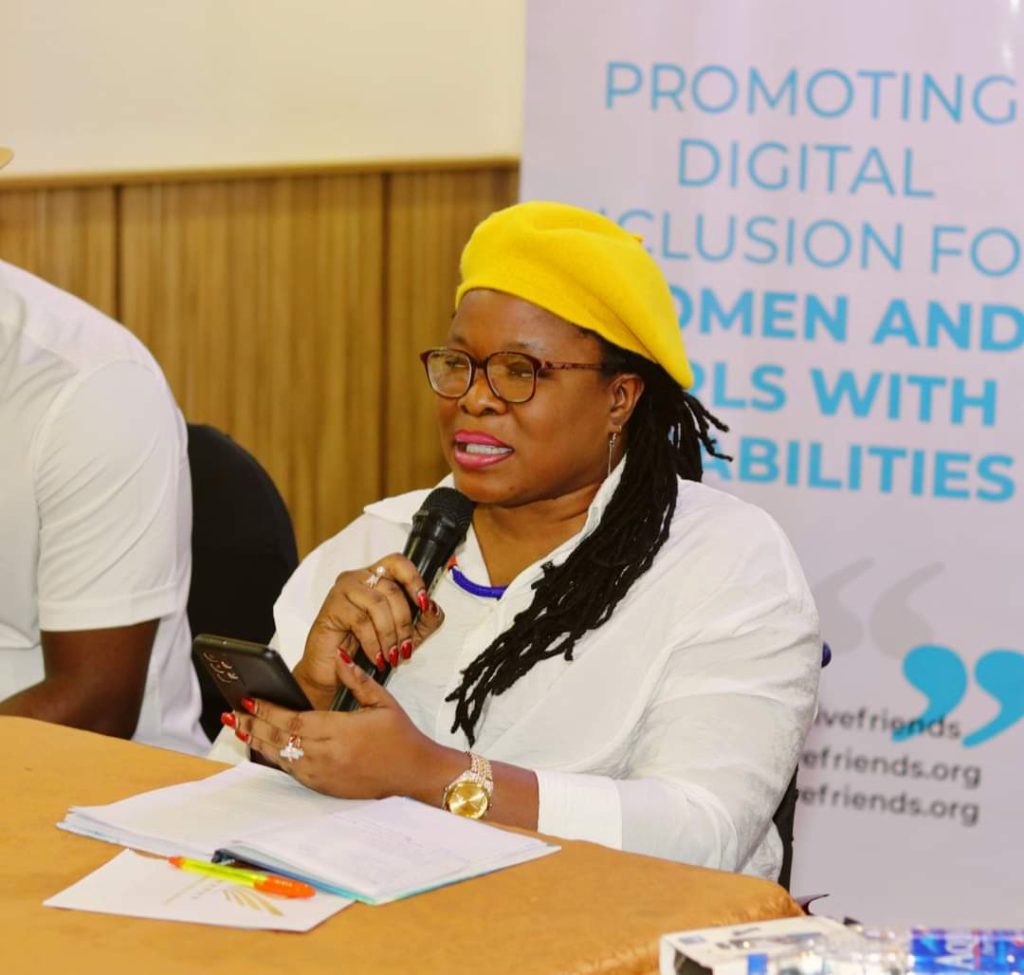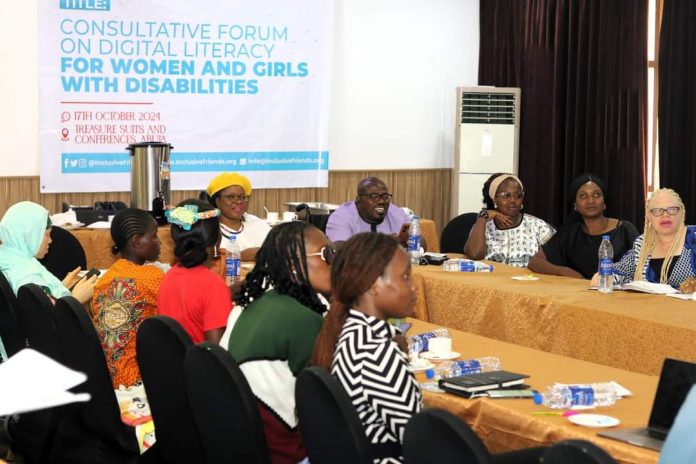In a bold push toward bridging the digital divide for women and girls with disabilities, the Inclusive Friends Association (IFA) with the support of Rise Up – Levantemos organized a consultative forum to spotlight the importance of digital literacy for marginalized groups. The forum, held under the leadership of IFA’s Executive Director, Grace Jerry, highlighted the urgent need for targeted digital inclusion strategies to meet Nigeria’s goal of achieving 95% digital literacy by 2030.
The Urgency of Digital Inclusion in Nigeria
In her welcome address, Grace Jerry emphasized that about 35 million Nigerians—16% of the population—live with disabilities. While progress has been made toward fostering inclusion, she lamented that persons with disabilities (PWDs) still face barriers to accessing basic services like healthcare, education, employment, and economic opportunities. She noted that unequal access to digital tools and platforms compounds the challenges faced by PWDs, especially women and girls.
“Digital literacy is essential for employability, economic empowerment, and improving livelihoods,” Jerry stressed. “However, unequal digital inclusion is a key driver of the disproportionate poverty levels in Nigeria, with up to 90% of PWDs living in abject poverty.”
While the federal government is striving toward a 95% digitally literate population by 2030, Jerry highlighted that digital policies and frameworks must address the unique needs of persons with disabilities—particularly women and girls—to ensure no one is left behind.
Stark Realities: The Digital Gap for Women with Disabilities
Jerry cited findings from a 2023 study by Tech4Dev, which revealed that 61% of women and girls with disabilities were unable to perform basic tasks like turning a computer on or off. This statistic underscored the glaring digital literacy gap between the disability community and the rest of the population.
While the National Information Technology Development Agency (NITDA) developed the National Digital Literacy Framework (NDLF) to guide the country toward universal digital literacy, Jerry pointed out that the framework lacks specific provisions for PWDs.
“The NDLF, as it stands, does not recognize the unique challenges of persons with disabilities, especially women and girls,” she noted. “Without targeted interventions, achieving digital literacy for all will remain an elusive goal.”

Collaborative Efforts and Strategic Recommendations
The forum served as a platform for stakeholders, government agencies, advocacy groups, and disability rights activists to analyze the NDLF and explore actionable recommendations for making it disability-inclusive. Participants discussed the importance of building networks and alliances that would champion digital literacy for women and girls with disabilities.
Jerry called on the government, NITDA, and other stakeholders to take deliberate steps toward creating accessible and inclusive digital frameworks. She stressed the need for more inclusive strategies if Nigeria is to meet its digital literacy targets by 2030.
“Adequate attention must be given to the peculiar circumstances of persons with disabilities, especially women and girls,” Jerry urged.
“This is essential if the quest for a digital economy is to succeed and if we are serious about ensuring that no one is left behind.”
A Call to Action for Stakeholders
Jerry’s speech concluded with a passionate appeal for stakeholders to prioritize digital inclusion as a critical component of national development. She emphasized that if Nigeria is to build a truly inclusive digital economy, persons with disabilities must be at the center of digital literacy initiatives.
“We have the opportunity to build a future where all Nigerians—regardless of their abilities—can thrive in a digitally connected world,” Jerry said.
“But this future can only be achieved through collective effort.”
The forum participants left energized, committed to collaborating on policies and programs that will empower women and girls with disabilities with the digital skills they need to succeed. The forum also developed actionable points which was duly signed by the organizations represented to serve as points that will drive a review to enhance disability inclusion in NDLF.
This consultative forum, spearheaded by the Inclusive Friends Association, sets a precedent for meaningful inclusion in Nigeria’s digital transformation journey. As stakeholders work to refine national frameworks and launch targeted initiatives, the hope is that women and girls with disabilities will no longer be left on the margins but will instead become active participants in the country’s growing digital economy.


